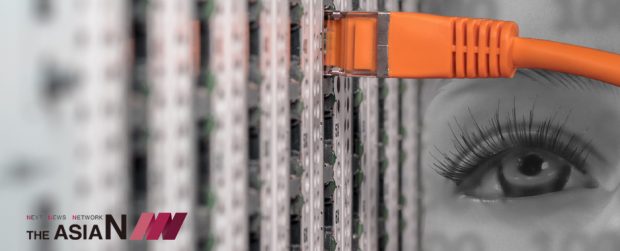“Big Brother is Watching You”: a Dystopian Journey through the Rating System for the Chinese Citizens
Launched on Britain’s Channel 4 in 2011 and then acquired by Netflix in 2015, Black Mirror is a tv series created by Charlie Brooker. The episodes are standalone works about the interaction between people and technology and about future behaviors. Among the episodes, Nosedive is one of the most interesting: augmented reality and a social-media platform let users rate human interactions on a five-star scale. Everyone has a public score that determines their values in the society. The main character of the episode, Lacie Pound (Bryce Dallas Howard), has a respectable 4.2 score but she needs a higher rating in order to get a discount for her house deposit. In fact, each score corresponds to certain benefits. In order to achieve her goal, the protagonist starts taking calculated steps but the unpredictability of life plays a cruel trick on her. In this fake and judgemental society, people are supposed to respond kindly and politely under any situation. Watching Nosedive, someone may feel frustrated by the fiction that permeates the society in the episode. However, in the end, it is just a TV series. Or maybe not.
Back in 2015, a start-up announced it was working on Peeple, an app very similar to Nosedive. Based on a five-star ratings system, Peeple lets users rate other people’s characters in three distinct areas: professional, personal, and dating. Users can leave a positive, neutral, or negative rating, and then write a detailed description. Many internet-users voiced their concern, highlighting the anonymous nature of the app and the unpredictable consequences of it. Is there anything worse than an application with borderline dystopian implications? Unfortunately, yes.
In 2014, the Chinese government published a document called “Planning Outline for the Construction of a Social Credit System”. The aim of this project is to judge the trustworthiness of Chinese people, 1.3 billion residents. Daily activities of citizens are constantly monitored: what people buy, which kind of friends they have, when (and if) they pay bills and taxes, and so on. Ratings are tallied to ultimately create the Citizen Score.
Participating in China’s Citizen Score is, for now, voluntary, but it will become mandatory by 2020. The government has given a licence to manage the system to eight private companies such as China Rapid Finance (developer of WeChat, a social media mobile application software used by 850 million users) and Sesame Credit (a financial system run by Ant Financial Services Group, affiliate company of Alibaba). The score ranking (350 to 950 points) is based on a secret algorithm that takes into consideration the credit history (which means, for example, if people pay their bills on time), the verification of personal characteristics such as phone number or address, the fulfillment capacity to contract obligations, the monitoring of interpersonal relationships (for instance, a person’s score may be affected by friends’ negative comment or actions), and the analysis of preferences and behaviour. “Someone who plays video games for ten hours a day, for example, would be considered an idle person,” declared Li Yingyun, Sesame’s Technology Director. As in the episode of Black Mirror, each rate has specific benefits: 600 points give the chance to spend 5,000 yuan (around $750) for online shopping; reaching 650 points means renting a car without deposit; above 700 gives the chance to apply for traveling in Singapore without providing specific documents, and the list goes on. But what if citizens do not fulfill the expectations? “People with low ratings will have slower internet speeds; restricted access to restaurants, nightclubs or golf courses; and the removal of the right to travel freely abroad (…) Scores will influence a person’s rental applications, their ability to get insurance or a loan and even social-security benefits. Citizens with low scores will not be hired by certain employers and will be forbidden from obtaining some jobs, including in the civil service, journalism and legal fields”, WIRED UK reports. One wonders when the birth of reputation black market will start and how it will look especially since the algorithms used for the Chinese Social Credit System do not take into account context such as the reason why someone missed a payment. On the other hand, the government declared that the project may help people excluded from the traditional credit system such as low-income individuals or students. Moreover, according to the Financial Times, most Chinese still lack a formal credit history so it would be hard to grant loans to these people.
This said, I tried to understand what Chinese people think about the Citizen Score. Analyzing the opinions of five educated Chinese living in China (20-40 years old), who prefer to stay anonymous, I realized that three of them are in favor of the system. The first declared payments and financial activities may be easier. The second said that the Social Credit System may create a safer country especially related threats of terrorism. The third person said that it is the best way to prevent “fake news” created in Western countries.
The remaining two people I interviewed also were not altogether against the project. They mostly just wondered if the project would actually work. One pointed out that the same system should be extended in other countries such as Russia and Japan, and the second interviewee voiced whether there could be negative consequences related to foreign trade.
In the end, none mentioned concern over privacy issues. Apparently, the fact that the government, famous for silencing critical voices, will collect and judge all the aspects of people’s lives is not perceived as a problem.
Is there truly no option in sacrificing freedom and privacy for the necessities of say, a bank loan?
Alessandra Bonanomi, reporter for The AsiaN


































































